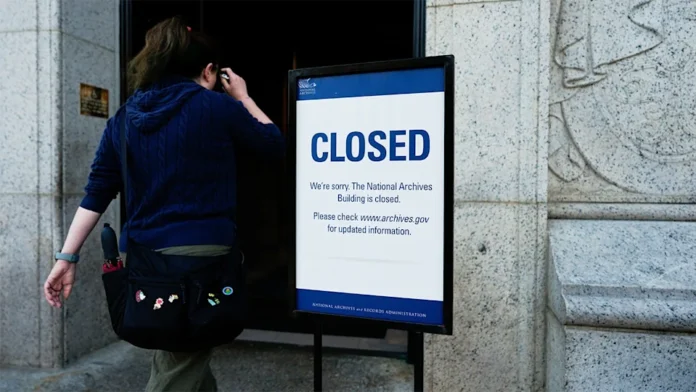As the federal government shutdown stretches into October, New Jersey is experiencing widespread effects across its workforce, infrastructure projects, and political landscape. Roughly 48,000 federal employees in the state, including nearly half in the military, are now furloughed or working without pay, creating financial strain for thousands of households. In response, New Jersey has authorized furloughed workers to apply for unemployment benefits, with the state’s maximum weekly payment set at $875, providing temporary relief for families navigating the uncertainty.
One of the most immediate and high-profile impacts of the shutdown is on the Gateway Hudson Tunnel Project, a cornerstone of the state’s transportation infrastructure. Funding for the massive $18 billion project has been paused by the U.S. Department of Transportation, citing reviews of Diversity, Equity, and Inclusion (DEI) contracting practices and administrative compliance. While construction continues for now, the freeze has raised concerns about delays, potential cost overruns, and its broader economic implications. The Gateway Development Commission, which oversees the project, confirmed it is continuing planning and compliance efforts and remains focused on maintaining the schedule and budget.
Transportation in New Jersey is feeling additional pressure. The Port Authority of New York and New Jersey has warned that prolonged federal disruptions could cause delays at Newark Liberty International Airport, as air traffic controllers and other critical personnel are affected. National Park Service sites, including the Statue of Liberty, Ellis Island, Paterson Great Falls, and Sandy Hook, may see limited operations or temporary closures, affecting both tourism and local economies. In the courts, the U.S. Bankruptcy Court for the District of New Jersey has suspended cases involving federal matters to avoid prejudicing outcomes while resources remain limited. Social and financial services are also being curtailed, with some federal programs like SNAP and WIC potentially at risk if the shutdown continues.
New Jersey politicians have quickly mobilized in response to the crisis. Governor Phil Murphy criticized Congressional Republicans for the shutdown, emphasizing the strain on healthcare, federal employees, and critical infrastructure. U.S. Senators Cory Booker and Andy Kim, joined by several members of the state’s congressional delegation, condemned the halt of Gateway Tunnel funding as politically motivated, highlighting the project’s importance for regional transportation, local employment, and economic growth. They called on the federal government to release the allocated funds immediately, stressing that the project supports thousands of jobs and billions in economic activity.
The political ramifications are particularly pronounced in the ongoing gubernatorial race. Democratic candidate Mikie Sherrill has positioned herself as a defender of the Gateway project, pledging to take legal action if necessary to secure funding and protect New Jersey interests. Her Republican opponent, Jack Ciattarelli, has yet to directly respond to the Hudson Tunnel freeze, prompting criticism from Sherrill that he would prioritize partisan politics over state needs.
The shutdown has also fueled heated rhetoric on social media and in national politics. National Republican campaigns have launched paid digital advertisements targeting New Jersey districts, framing Democrats as responsible for the government closure, while Democrats have placed blame on Republican inaction and the Trump administration’s role in withholding federal funds. Meanwhile, the Office of Management and Budget has signaled that the funding freeze on mega-projects, including the Hudson Tunnel and New York City’s Second Avenue Subway, will remain until a review of alleged unconstitutional DEI contracting practices is complete.
As New Jersey grapples with the shutdown’s impact, the Gateway Tunnel Project remains a focal point, symbolizing the intersection of federal policy, regional transportation needs, and political debate. The project is essential not only for commuting and commerce but also for sustaining tens of thousands of jobs tied directly to its construction and ancillary services. Lawmakers, public officials, and local leaders continue to monitor the situation closely, emphasizing that solutions are needed quickly to prevent further disruption to New Jersey’s economy and infrastructure.
For ongoing coverage of New Jersey politics, legislative responses, and infrastructure developments, residents can explore Explore New Jersey Politics for the latest updates and analysis.












